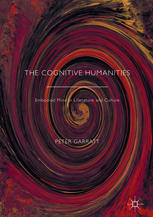

Most ebook files are in PDF format, so you can easily read them using various software such as Foxit Reader or directly on the Google Chrome browser.
Some ebook files are released by publishers in other formats such as .awz, .mobi, .epub, .fb2, etc. You may need to install specific software to read these formats on mobile/PC, such as Calibre.
Please read the tutorial at this link. https://ebooknice.com/page/post?id=faq
We offer FREE conversion to the popular formats you request; however, this may take some time. Therefore, right after payment, please email us, and we will try to provide the service as quickly as possible.
For some exceptional file formats or broken links (if any), please refrain from opening any disputes. Instead, email us first, and we will try to assist within a maximum of 6 hours.
EbookNice Team

Status:
Available4.7
10 reviewsThis book identifies the ‘cognitive humanities’ with new approaches to literature and culture that engage with recent theories of the embodied mind in cognitive science. If cognition should be approached less as a matter of internal representation—a Cartesian inner theatre—than as a form of embodied action, how might cultural representation be rethought? What can literature and culture reveal or challenge about embodied minds? The essays in this book ask what new directions in the humanities open up when the thinking self is understood as a participant in contexts of action, even as extended beyond the skin. Building on cognitive literary studies, but engaging much more extensively with ‘4E’ cognitive science (embodied, embedded, enactive, extended) than previously, the book uses case studies from many different historical settings (such as early modern theatre and digital technologies) and in different media (narrative, art, performance) to explore the embodied mind through culture.